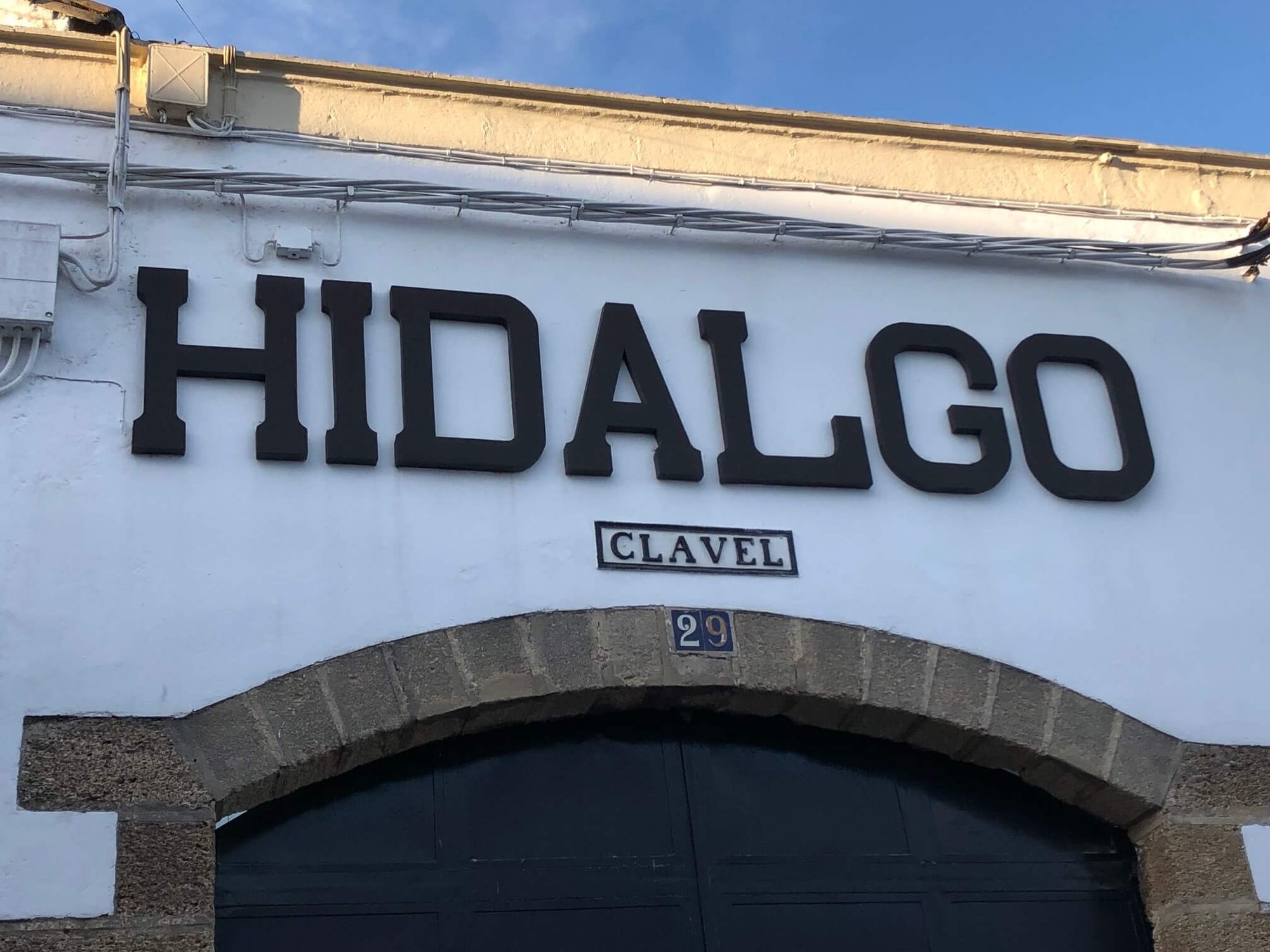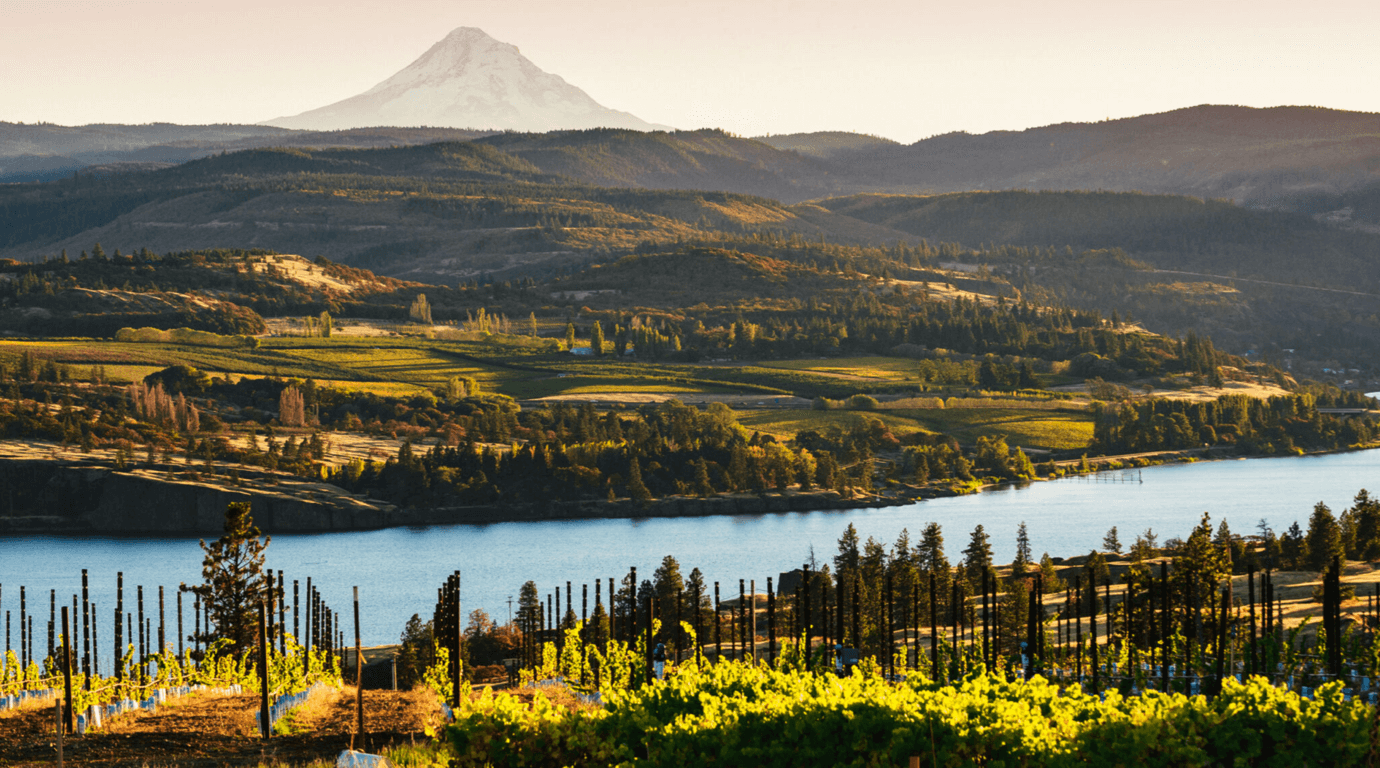International Sherry week began 8 years ago – 7 whole days devoted to tasting, sharing, explaining the world’s most versatile and complex fortified wine. I’ve not passed up a single chance to promote Sherry’s delights since. I’m also very fortunate to work with an exceptional range of Sherry in the shops – none more so than those from Bodegas Emilio Hidalgo.

Of course, Hidalgo is a big name in Sherry – famous for Manzanilla La Gitana – with the colourful painting of a gypsy on its label, said to portray the owner’s mistress, rather than his wife… But Bodegas Emilio Hidalgo are totally unrelated to the better-known one. They founded their bodega in 1874 and today it’s run by the 5th generation of the same family.

Housed in Calle Clavel in the Jerez’s Moorish quarter, the old bodega retains its traditional form: thick walls, high ceilings with windows at the top to allow fresh air in but keep sunlight out, a sand floor, all typical of a Jerez Bodega and designed to keep the humidity essential to the growth of flor and to the slow oxidative maturation in the old barrels of the soleras.

It’s a large space with distinctly different “micro-climates” within it. There are areas where it’s cooler and damper so the flor is thicker, slowing maturation – or warmer and less humid making maturation a little faster.
Emilio Hidalgo majors on a very particular area in Sherry production – maturation. They no longer own their original vineyards, but source the must, and sometimes the already fortified wines, from the same trusted 2 or 3 sources every year.
In most bodegas the Soleras (rows of barrels of maturing Sherry) are stacked often 5 or 6 rows high. Here they keep them as close to floor as possible and in the coolest and most humid areas in order to maximise maturation under flor.
Here the top Sherries have an astonishingly long elevage in comparison with most other bodegas. They also use a mix of biological and oxidative ageing in a highly individual way.
We have four wonderful examples of their handiwork on our shelves. These magical, complex wines are all very food friendly…

La Panesa Especial Fino
100% Palomino from the Panesa vineyard.
First made 40 years ago, La Panesa has an average age of around 15 years. Its style is the result of reducing the frequency of adding young wines to the Fino solera to refresh it during biological maturation. It’s important to do this regularly because the flor needs a continuous source of nutrients which young wine provides in order to continue multiplying.
Reducing the additions allows for more oxidative notes to develop as the layer of flor starts to die back. La Panesa’s slightly darker colour and gently oxidative nose reflect this dual ageing process, while on the palate, roasted almonds, ginger and spice vie with the typical salinity of a Fino Sherry – but massively amplified in concentration. It’s powerful, intense and very long. 5000 bottles per year.
Food pairings: Bacalao, Shellfish, Jamon, Marcona almonds, Gildas

El Tresillo Amontillado Fino
Named after a card game played by the Bodega workers, El Tresillo starts life as a Fino, ageing for around 8 years in the Fino solera before being transferred to the Amontillado Solera where it spends around a further 5 years ageing oxidatively. The average age of wines in the Tresillo Solera is between 20 and 25 years.
You get a whisper of the wine’s fino’s upbringing on the nose – but it’s mostly the sweet aroma of dried fruits and roasted hazelnut of its oxidative ageing that dominate. On the palate the savoury, umami, yeast-driven flavours reassert its long period of biological ageing under flor – and what you might have expected to be sweetness proves to be rather more saline with warm notes of old wood and resin.
Food pairings: Aged Manchego (pure sheep’s milk), Jamon with tomatoes (a double dose of umami!), mushrooms and eggs, sweet spicy and smoky Chorizo

El Tresillo 1874 Amontillado Viejo V.O.R.S
From the same original 1874 Tresillo Solera but bottled from the very oldest casks with an average age of 50 years.
Imagine the intensity of the Amontillado Fino magnified by much longer ageing in American oak casks – with the corresponding evaporation and concentration. Very viscous on the palate and taut with the concentration of the “rancio” style of very aged fortified wines – walnuts and orange peel, dried nuts, allspice, nutmeg cinnamon, fig, toffee, cream, bone-dry – magnificent. 3000 bottles per year.

El Gobernador Oloroso
Traditionally an Oloroso would not age under Flor at all but Emilio Hidalgo do things differently and this spends a few years ageing biologically before moving to the Oloroso Solera. At around 12 years of age, it has a deeper brown colour with obviously oxidative notes of dried fruits and nuts, its early years under flor give it a freshness – and it is bone dry.
Food pairings: Roast game, Duck and slow cooked meats like Oxtail and Ox cheeks, Rich stews like cassoulet and strong aged cheeses



